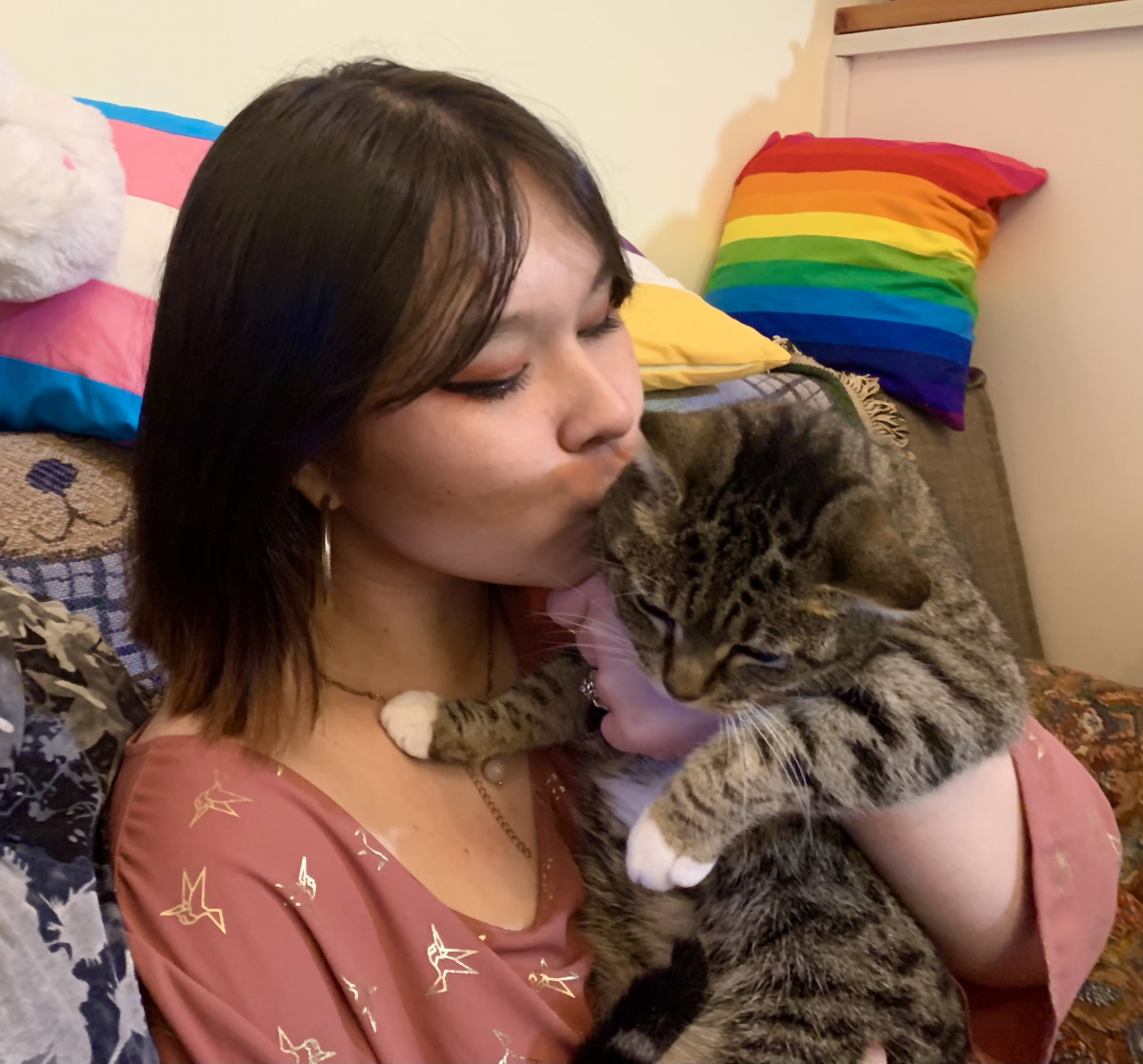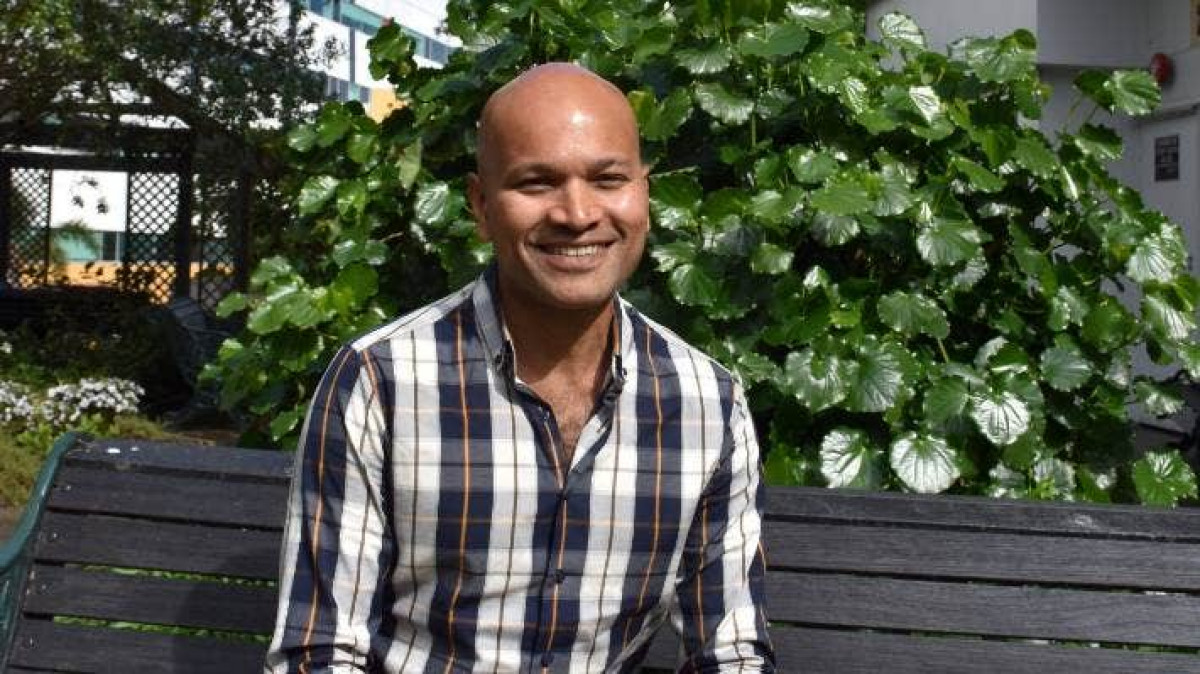Content warning: This article discusses mental health and self harm.
For Keira Arnold, the hardest part of the pandemic was feeling isolated and disconnected from real life connections.
“During the pandemic we’ve been completely online and that takes a huge toll on teenagers. These are our formative years, and we have to spend them at home,” the 18-year-old says.
“Over time you start to get used to it but it still hurts to be so cut off from the rest of the world.”

Keira says mental illness among young people has become normalised since the pandemic. Photo: Supplied
Keira has struggled with mental health issues for most of her life.
But she says since the pandemic, mental illness among young people has become normalised because it is now even more widespread.
“People joke about poor mental health in such a lighthearted manner now because teenagers having depression or anxiety is almost expected these days.
“It’s good that we can casually talk about it, but sometimes it does minimise what people are actually going through.”
More teens are being hospitsalised for self-harm injuries
Since the start of the pandemic, 25% more 15 to 19-year-olds have been admitted to hospitals around the country after self-harm events.
For 10 to 14-year-olds, that number has doubled.
According to Starship Hospital, a public children’s hospital in Auckland, more than 5600 young people were admitted to hospital emergency departments around the country for self harm injuries in 2021.
That’s more than 100 admissions every week.

Dr Hiran Thabrew says it’s common for mental health issues to arise years after the triggering event occurs. Photo: Supplied
Starship Hospital child psychiatrist and mental health researcher Dr Hiran Thabrew says he has felt this increase on the ground but was surprised to hear how many more 10 to 14-year-olds are being hospitalised for self-harm injuries.
“It has felt a lot busier to us,” he says.
“We’ve had lots more people being referred to mental health clinics and lots more presenting to Starship after overdosing, cutting, and other forms of self-harm. But I was shocked to hear how many more of these people were of that youngest age group.”
He says girls are more likely to self-harm than boys.
Young people of Māori and Pacific ethnicity, and also those who are on LGBTQIA+ spectrum are especially vulnerable, Thabrew says.
Thabrew says the pandemic has been “disproportionately more stressful” for young people.
“The pandemic has been psychologically stressful for a lot of people,” he says.
“But young people are already experiencing changes in their body, finding their identity and navigating complex relationships, sometimes for the first time. So being stuck at home and not being at school or seeing their friends and loved ones has significantly disrupted this development.”
Thabrew says the psychological impact of traumatic events is often delayed and prolonged so these numbers may still increase.
“For instance in Christchurch, referrals to services peaked about three years after the earthquakes.
“So we can anticipate that an event like the pandemic and all of the lockdowns are going to have an ongoing effect on young people's mental health and well being for the coming few years.”
Using technology to help a mental health system at breaking point
Keira says even though Covid-19 has caused death and severe health issues, she believes mental health issues triggered by the pandemic will be a bigger and longer lasting issue.
“There's no win in any of these situations and I think it will take a long time to know how much damage has been done,” she says.
New Zealand’s mental health system was overwhelmed before Covid-19 so now limited services are even more stretched, Thabrew says.
That’s why e-health and technology are being relied on more than ever to desperately try and fill some of this void.
Starship has launched Village, an app designed to help young New Zealanders feel safe to open up to their family and friends.
The app, co-designed by rangatahi around the country, gives users and their friends and family advice and prompts to help people find tools to talk and support each other.
When distressing or alarming language is used, the app is also triggered and directs people to other mental health services.
“Apps like these can’t replace professional psychologists or counselors. But they can try to support people and their families between clinical care and give people the tools to start opening up, which is often the hardest part.”
Where to get help – these free helplines operate 24/7:
- Need to talk? - call or text 1737
- Youthline: 0800 376 633 or text 234
- Lifeline: 0800 543 354Suicide crisis helpline: 0508 828 865
- Depression helpline – 0800 111 757 or free text 4202
- Decide - 0800 DECIDE - a national abortion telehealth service with support and information about abortion services
Top image: Young female patient sitting in ward bed / Getty Images
I want to come out to my parents before my 21st | 2000s Baby
“I’m always known to be the quiet one.”
House prices drop 2.2% across NZ - finally
The average value in NZ's largest city now sits at $1,492.807
Why 23-year-old TV personality D'Angelo Martin gave up alcohol
“I want to live how our ancestors did.”